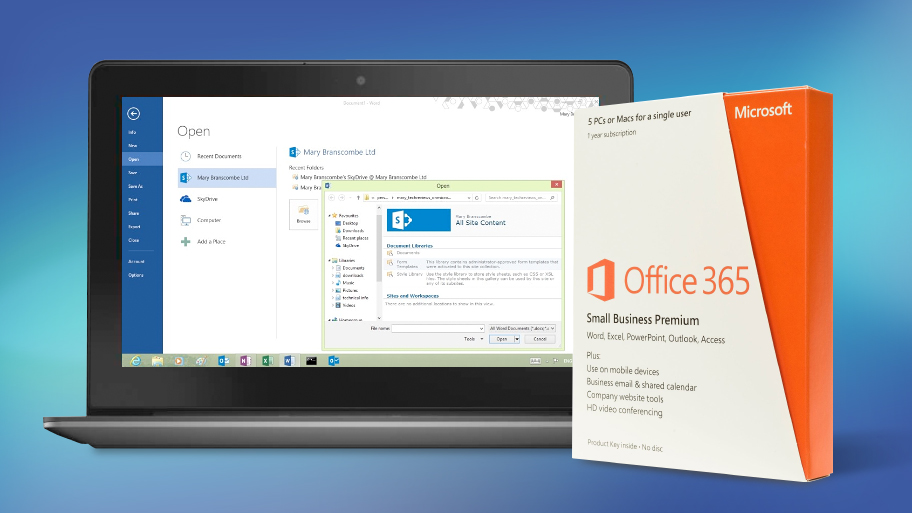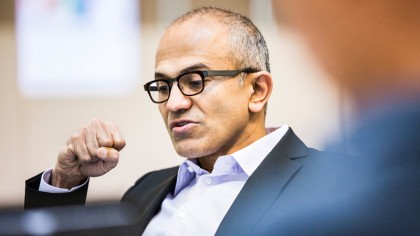Microsoft's future under Satya Nadella: a very different, braver company
Redmond is willing to take risks going forward
Businesses are also warming to Windows 8, which was regarded with a sceptical eye when first released in 2012. Tracey Rothenberger, COO of Ricoh Americas Corp., runs a base of 17,000 PCs and is complimentary of Windows 8. "I don't think there's anything wrong with [Windows 8]," he told the Wall Street Journal. Gartner analyst, Mikako Kitagawa, agrees with Rothenberger. "Windows 8 is the right direction," he claims but with a caveat, namely that: "It will be a while before Windows 8 is adopted".
Scepticism from businesses is a hurdle that Nadella must overcome, especially since his company is becoming more and more reliant on their cash. Windows 8.1 sets out to ease the transition from Windows 7, the most popular OS in the world, adding a "boot to desktop" mode and more support for a mouse as opposed to a touchscreen.
Whether these updates have an effect on the adoption of Windows 8 by business customers remains to be seen, but it is certainly the right direction for Microsoft to move. The next version of Windows, codenamed Threshold, is rumoured to build upon Windows 8.1's successes, especially with regard to accommodating desktop users who are without a touchscreen, further ingratiating Microsoft with their business users. Nadella also confirmed that it will unify all current platforms, tying three OSes into one.

Enterprising efforts
In terms of enterprise software, Microsoft is always making headways. Office 365, the cloud-based version of Office, now makes up roughly 40% of the value of the Office division of Microsoft and has just been updated with new business-focused features, such as more advanced levels of encryption for files and 1TB of storage.
Forbes estimates that Office 365 will bring in $1.7 billion (around £1 billion, AUD$1.8 billion) in revenue annually for Microsoft within the year, which is remarkable for a service launched to the public in 2013.
Expanding Office 365 to iPad and allowing new users to sign up for an account via their Apple ID will also bolster revenue, despite Apple taking a 30% cut, and is a sign of Nadella and Microsoft's new drive to work with other companies.
Microsoft's plans essentially extend to the philosophy of "carry on doing what we're doing". Enterprise and desktop sales – which still represent a significant cash flow, despite the wane – can support the company until it either pivots away from consumer-side endeavours, just as Oracle or IBM have done, or a consumer product that isn't the Xbox or Office catches on. Opening up Office 365 by lowering the subscription price and releasing an iPad app has allowed Microsoft greater mindshare and, in turn, greater revenue.
Are you a pro? Subscribe to our newsletter
Sign up to the TechRadar Pro newsletter to get all the top news, opinion, features and guidance your business needs to succeed!
Importance of wearables
Windows is in the hands of 90% of the world but needs to come up with, or latch onto, the "next big thing". I've previously argued that Microsoft must get into the wearables game to stay truly relevant and there are signs that the company will.
Multiple people I've spoken to on condition of anonymity stated that Microsoft was indeed interested in making a smartwatch, actively exploring implementations of the device (no doubt spurred on by Google's I/O performance and rumours of Apple's interest in the sector). Microsoft was bitten when it came to smartphones and will be eager to prevent a similar situation from happening again.

The Microsoft we see today is totally different from the Microsoft of a year ago, operationally and in terms of aspirations. Satya Nadella's leadership has brought about a braver company willing to take risks, but also ready to work with its core enterprise customers to retain the backbone of its revenue. As I've written previously, Satya Nadella's stewardship has had a great positive impact on Microsoft and we will start to see the fruits of his labour in the coming year.
Max Slater-Robins has been writing about technology for nearly a decade at various outlets, covering the rise of the technology giants, trends in enterprise and SaaS companies, and much more besides. Originally from Suffolk, he currently lives in London and likes a good night out and walks in the countryside.